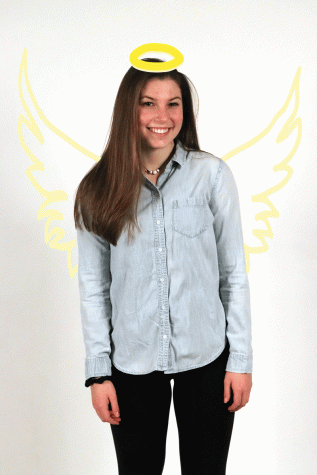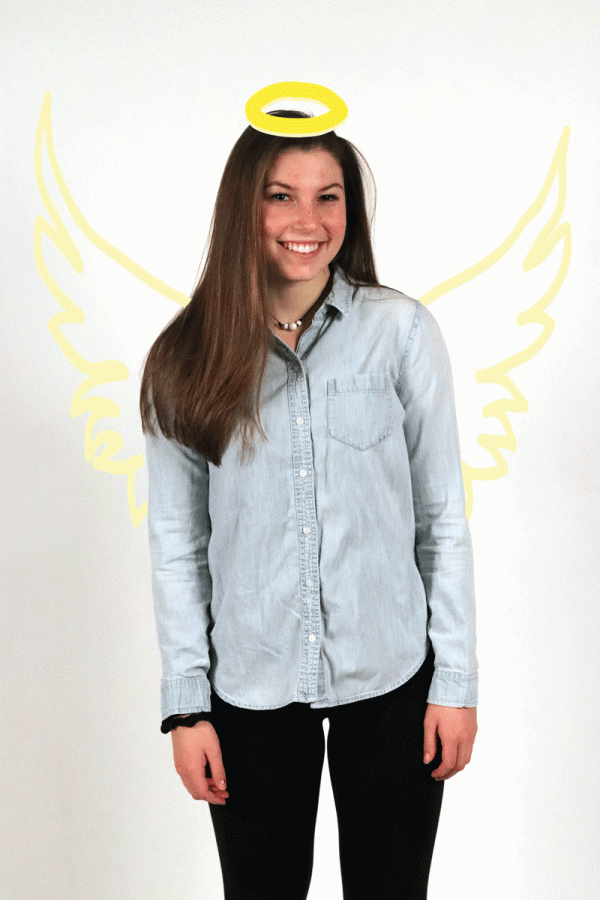The Unspoken War
A fight between good and evil almost always promises a good story— but what if the stories aren’t fantasies, and are instead a real life battle.
Life is filled with decisions and every decision made in the present can affect the future. Every decision has a motive and with every motive, personal values are shown. There is a positive and negative to every situation, and it’s up to the individual to weigh the options and choose the best one. It is a dangerous oversimplification to say that people are either naturally “good” or innately “evil.” Human nature is more complex than dividing people into two categories.
The argument over whether humans are naturally good or evil has been a controversial topic since the 17th Century. Philosophers Hobbes and Rousseau put forward opposite theories of human nature and their morality. Hobbes believed that the natural state of man was self centered and brutish. This concept is based on the genetic hard-wiring which is geared towards survival and aggression — in other words, inner animal instincts. Without them, there would be no individual success. Rousseau believed that people are all born “good,” and it is civilization that turns people evil. As an individual, the natural aggression to become successful is important to grow, but may come across as self centered to others in society. The double edged sword held between the two dances along a fine line of what is “good” and “evil” in other people’s eyes.
As a child experiences the environment around them, they develop physical, emotional and social skills. This can influence their developing sense of right versus wrong, or their own moral compass. Junior Sean O’Hara is involved in martial arts, where using moral reasoning is important practice.
“I see [a moral compass] as something that will guide you from or guide you away when given any choice in life,” O’Hara said. “There are good and bad things being thrown at us every single day and our moral compass is used in those gut decisions and [to] complete actions.”
A strong moral compass allows for an individual to become secure in their thoughts and comfortable in their decision making skills. According to a brand new study from “Human Brain Mapping” by Leonardo Christov-Moore, the tendencies for altruism, a behavior that stems from empathy, are the same parts of the brain responsible for impulse control, or the gut reaction people experience. Researchers claim that selflessness may be hardwired in the brain and it may be able to encourage more altruistic behavior.
“The more we tend to vicariously experience the states of others, the more we appear to be inclined to treat them as we would ourselves,” Christov-Moore wrote.
Making long-term decisions can be hard. Not only do they consist of the heart versus head conflict, but also the individual perspective versus society. Research found that blocking parts of the brain responsible for impulse control (whether those impulses are positive or negative) lead to altruistic behavior, suggesting that our natural impulses are good, not bad. The natural gut response demonstrates that moral instincts are present when asked to react to a situation before there is time to engage in rational thought. However, if a person is not strong in their morals, a stronger force can change their thinking without realizing it. Friends can come and go, but correcting wrong morals is harder to do than maintaining an already existing moral compass.
As a child grows older, the environment he or she is in and new friendships change the already defined moral compass that was initially created. This social influence refers to the way in which individuals change their ideas to meet the demands of a social group; in this case, the happenings of each person’s society is what makes one change. The thought process changes from an individual moral mindset to an outward influenced social act. Together, the morals of the established group is held and it is up to the people within the society to uphold the rules and values of the group.
However, according to “PsychologistWorld,” this can eventually lead to a conformity of views, resulting in a phenomenon known as groupthink. When this happens, members adopt each other’s agreed views and actions to achieve a given goal, but reject criticism from individuals who oppose the group’s behavior. This power struggle can turn a good natured society into an “evil” one if a leader has weak morals. As reported by Hara Estroff Marano of “psychologytoday,” research concludes that humans tend to think negatively, resulting in pessimistic perspectives and opinions on themselves and others. Sometimes it is easier to hate than it is to love; love means to accept one for themselves and their flaws which can be hard to adapt to. The desensitized human nature can bring out the unfair and ugly side of society. People are products of their surroundings.
“We choose our own paths in life, and by doing so, we have to rely on ourselves and the experiences that have happened to us because they make us who we are,” junior Tyler Kuxhouse said. “I think people may help or influence our path, but if we go down the wrong path, we can only blame ourselves.”
In recent years, this society has begun to become a victim culture: one that places the blame on anything else but themselves. This gives an explanation that people are self centered because the society is. In other words, good societies produce good people, evil societies produce evil people.
According to author Bryan Wood, Evil acts occur when one aspect of a system breaks down. Shortly after, the motivations of the group as a whole changes. Ideas and opinions are not set in stone, and when exposed to the wrong people, the morally sound values morph and adapt into the opposite extreme.
The ideas and morals throughout a group can fluctuate and change if need be, but if the leading people in society do not know right from wrong, their moral compass points the wrong way for their whole group. Instead of fixing their morals, people choose to blame others, the environment they are in or their situation. Violence and evil are no strangers to this world and they are never going away; however, if people learn to recognize the sources of neglected behavior, they may be able to intervene and prevent good people from making tragic decisions.




